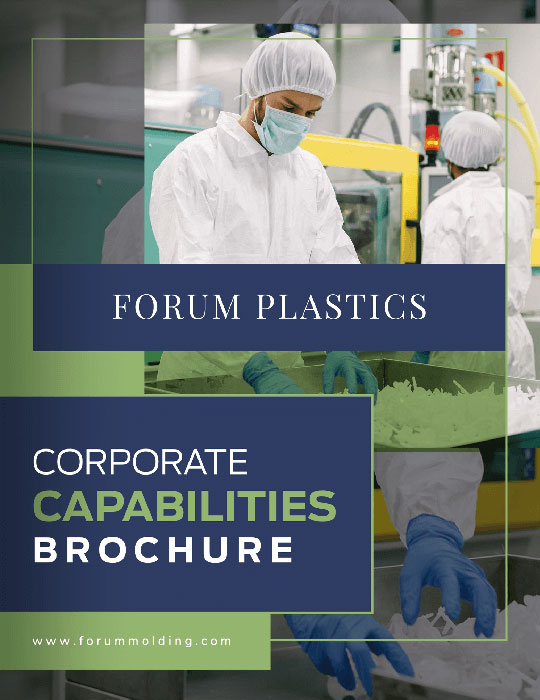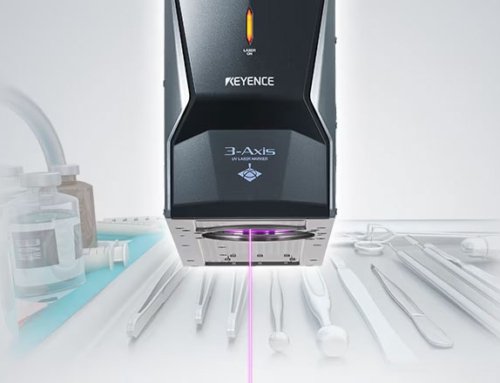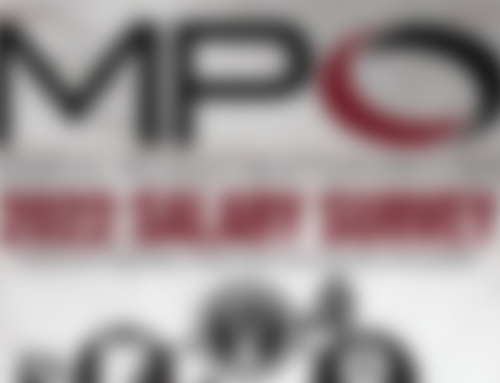4 Questions to Ask When Choosing a Medical Molding Partner
When engineers and commodity managers are faced with making a vendor selection decision for medical molding, there can be a lot at stake on both a professional and personal level. Making a poor choice has significant ramifications that can impact your organization, as well as patient care.
Partnering with an industry-leading micro molding and injection molding partner for medical devices can provide peace of mind.
Here are four questions to ask when choosing a medical injection molding partner:
1. Does the injection molder understand relevant regulatory requirements and have the necessary capabilities?
Within the industry, it’s well known that if a supplier is not ISO 13485 certified, they likely don’t have the processes and culture needed for the medical market. Beyond certifications, there are ever-changing regulations and legislation that must be monitored to ensure that your medical device can obtain the necessary approvals and clearances required by the FDA.
When you place your trust in a medical injection molding partner, you want to have confidence that they have well-defined systems and practices, as well as material and documentation traceability processes in place.
Additionally, what is the molder’s experience with engineered resins? It’s important to know if the vendor has run your material before and if they have a keen grasp on how that material needs to be processed. Can they provide guidance and material selections that will keep your product on the bleeding edge of innovation and the latest available materials? For example, materials used for medical instrument component applications are suitable for bio-compatibility and sterilization.
2. Do they offer other value-added services that support the medical market?
Having the right certifications is only half the battle. Does your medical injection molder offer a full suite of the needed secondary operations, such as a cleanroom and assembly, kitting and packaging solutions that will meet FDA requirements? Has the injection molder invested in the automation of pad printing, hardware insertion or specialty molding capabilities like micro molding?
Consider whether the vendor can design and build their tooling in-house, as well as manage ongoing tool maintenance and EC changes in their own tool shop.
3. Have they made investments into quality systems and inspection equipment?
For injection molding, having a CMM machine is non-negotiable, but what else does the vendor offer in their quality inspection and metrology lab to expedite the validation and part approval process? Ask about their commitment to making investments and upgrading lab equipment to keep up with the ever-changing medical market.
Staff development and training are important as well to benefit your product development and help guide you through IQ/OQ/PQ.
4. Are they experienced in supporting the medical industry?
It seems intuitive that if an injection molder has limited experience in the medical industry – or if this is only a small portion of their overall revenue – there’s a good chance that the molder may not truly be a subject matter expert in medical molding.
While other industry and market segment capabilities can be part of a total book of business, it’s likely that this doesn’t translate into expertise that supports medical product development and meets regulatory requirements.
A Medical Molding Partner With Over 30 Years of Experience
For over 30 years, Forum has provided experience and expertise from every aspect of product design, engineering, tool design, project management, quality systems and sustaining production. Forum has been focused on continuous improvement, expanding and investing in the latest technologies, as well as staff training and market knowledge to support the evolving medical molding marketplace.
We have a keen understanding of the strict requirements for medical device development and qualification, and we’ve made significant investments to provide world-class quality systems. Our quality lab employs the latest state-of-the-art equipment including an industrial CT scanner and a fully kitted metrology lab. Forum’s quality systems, equipment and personnel meet and exceed all of the requirements to achieve and maintain our ISO 13485 certification.
Quality and repeatability are part of our DNA. Our expertise allows us to provide medical customers with complete validation, PPAP and qualification services. We have a robust IQ/OQ/PQ process that can be tailored to your specific product validation requirements.
Our competency in medical molding can also be seen in our manufacturing services and processes. Forum made recent investments in an ISO Class 7 Certified Cleanroom, an automated and microprocessor controlled pad printing high-volume work cell, and a complete suite of secondary operations.
Our facilities are designed to support precision and exacting manufacturing processes like our micro molding expertise. With fully integrated systems to support molded components for surgical and implant devices, Forum employs the necessary equipment to mold parts as small as .005 in3 (0.8 cm3) or less, in volume.
Forum has a legacy of expertise in supporting products such as:
- Endoscopic tools
- Surgical devices
- Surgical stapling
- Patient monitoring devices
Trusted Expertise in the Medical Industry
When choosing a partner for medical molding, selecting a supplier with experience, longevity, commitment to innovation, financial stability, and subject matter expertise that aligns with your product needs means greater peace of mind. Because Forum takes the guesswork out of medical molding, device manufacturers can partner with us confidently.
To learn more, contact Doug Hungerford, Director of Engineering.
Stay Connected
Sign up to get updates from Forum





